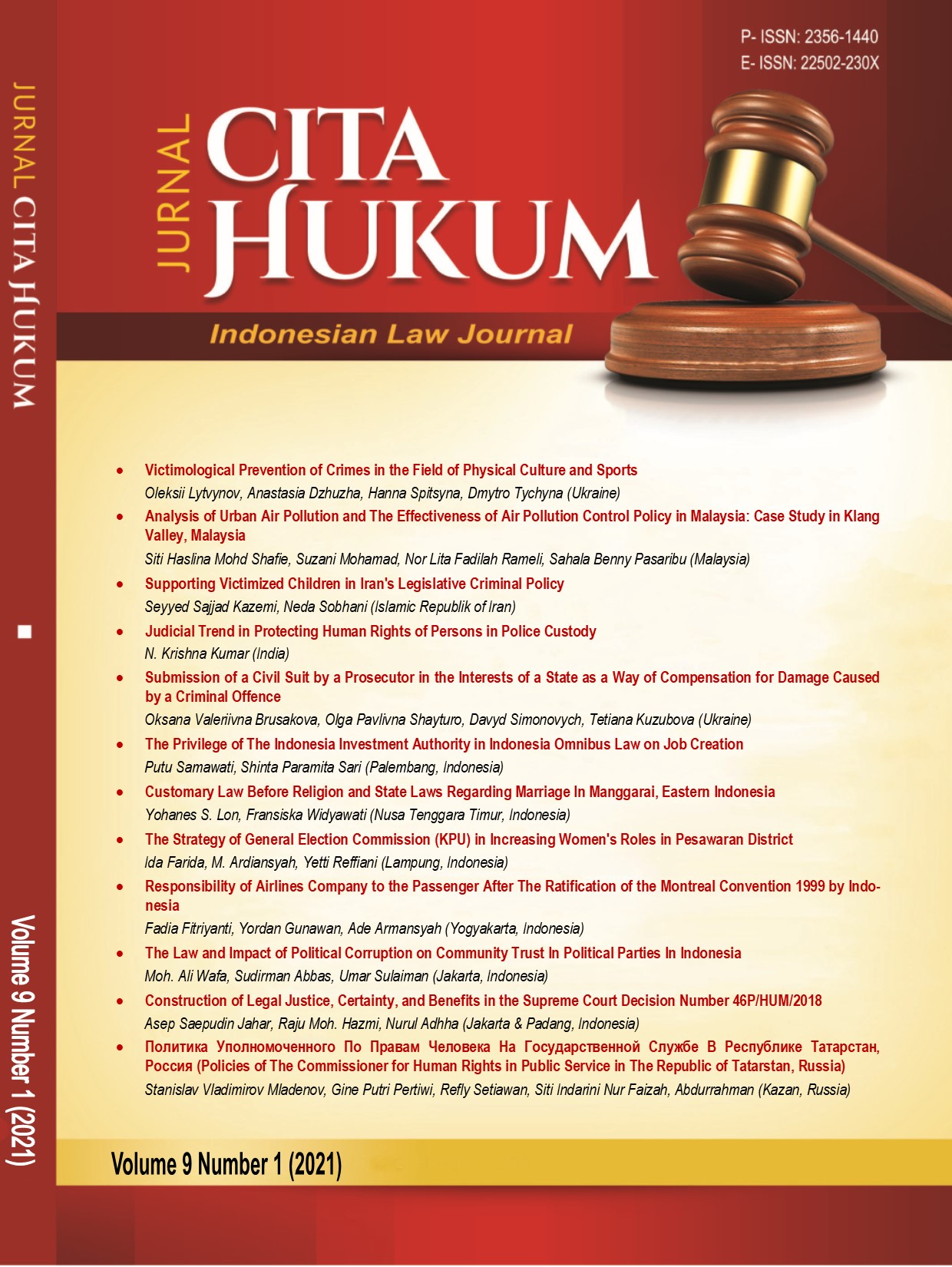Legal Aspects of Sharing Economy Business Model
DOI:
https://doi.org/10.15408/jch.v11i2.34616Keywords:
Sharing Economy, Business Model, Legal AspectAbstract
The swift advancement of the sharing economy has introduced novel issues in company regulation and equity, particularly in a Muslim-majority nation such as Indonesia. The Qur'an establishes a framework of principles, including justice, transparency, and cooperation, pertinent to contemporary business activities. This study aims to uncover legal concepts in the Qur'an applicable to the sharing economy and to explore how Indonesian rules may be modified to accord with these principles. The employed study methodology is qualitative, incorporating a literature review that utilises primary sources from the Qur'an and Islamic law, alongside a normative legal framework to examine legislation pertinent to the sharing economy sector in Indonesia. The study's findings suggest that adopting the sharing economy business model aligns with Qur'anic principles, including equitable profit distribution, the prevention of exploitation and uncertainty (gharar), and the significance of accountability and responsibility in commerce. In summary, implementing legal principles derived from the Qur'anic perspective can facilitate the establishment of equitable and transparent regulations that promote the development of the sharing economy while fostering social welfare and confidence among business entities and consumers. This study underscores the necessity of aligning contemporary rules with sharia principles to establish a just, sustainable, and Qur'anic business environment.
References
Al-Qardhawi, Yusuf. (2000). terj. Abu Barzani, Risalah Gusti, Ijtihad Kontemporer, Kode Etik dan Berbagai Penyimpangan, Surabaya, t.p.
Al-Qattan, Manna’ Khalil. (2015). diterjemahkan oleh Mudzakir, Studi Ilmu-Ilmu Al-Qur’an, Jakarta: Litera AntarNusa, Cet. ke-18.
Asy-Suyuthi, Jalaluddin, Jalaluddin Muhammad Ibn Ahmad Al-Mahalliy, (2009). Tafsir Jalalain: Final Version, Tasikmalaya: Pesantren Persatuan Islam 91, dalam bentuk software computer: E-Book Tafsir Jalalain Terjemahan Bahasa Indonesia.chm, surat Al-Baqarah[2]: 177.
Cheng, M. (2016). Sharing economy: A review and agenda for future research. International Journal of Hospitality Management, 57, 60-70.
Felländer, A., Ingram, C., & Teigland, R. (2015). Sharing economy. In embracing change with caution. Näringspolitiskt Forum Rapport (Vol. 11).
Hamari, J., Sjöklint, M., & Ukkonen, A. (2016). The sharing economy: Why people participate in collaborative consumption. Journal of the association for information science and technology, 67(9), 2047-2059.
HAMKA, Haji Abdul Malik Abdul Karim Amrullah. (1989). Tafsir Al-Alzhar, Singapura: Pustaka Nasional PTE Limited, Jilid 2.
Hossain, M. (2020). Sharing economy: A comprehensive literature review. International Journal of Hospitality Management, 87, 102470.
Kasmir, (2011). Kewirausahaan Edisi Revisi. Jakarta. Rajawali Pers.
Kotler, Philip; Armstrong, Gary. (1988). Prinsip-Prinsip Pemasaran, Jakarta. Gelora Aksara Pratama.
Kotler, Philip; Armstrong, Gary. (2008). Manajemen Pemasaran, Edisi 13 Jilid 1, Jakarta. Erlangga.
Möhlmann, M. (2015). Collaborative consumption: determinants of satisfaction and the likelihood of using a sharing economy option again. Journal of consumer behaviour, 14(3), 193-207.
Quthb, Sayyid. (1967). Fî Zhilâl al-Qur’ân, Beirut. Dâr Ihyâ al-Turâts al-‘Arabî, Juz. I.
Schor, J. (2016). Debating the sharing economy. Journal of self-governance and management economics, 4(3), 7-22.
Schor, J. B., & Cansoy, M. (2019). The sharing economy. The Oxford handbook of consumption, 51.
Sholahuddin, M. (2007). Asas-Asas Ekonomi Islam, Jakarta. PT. Raja Grafindo Persada.
Sparks, Kassandra. (2015). The Sharing Economy: The Production, Consumption, and Regulation of Community in The Digital Economy, Thesis di Swarthmore College.
Stanton, William J. (1996). Prinsip Pemasaran, Jilid I dan II, Edisi ketujuh, Jakarta, Erlangga.
Sumarsono, Sonny. (2010). Kewirausahaan, Yogyakarta. Graha Ilmu.
Tham, W. K., Lim, W. M., & Vieceli, J. (2023). Foundations of consumption and production in the sharing economy. Electronic Commerce Research, 23(4), 2979-3002.
Tjiptono, Fandy. (1997). Strategi Pemasaran, Yogyakarta. Andi Yogyakarta,
Yusuf, Abu. (1979). Kitab al-Kharaj, Beirut. Dar al-Ma’arif.
Website:
https://idcloudhost.com/marketing-mix-konsep-dan-penerapannya-dalam-bisnis-online-startup/, diakses pada tanggal 15 Maret 2021.
https://idcloudhost.com/marketing-mix-konsep-dan-penerapannya-dalam-bisnis-online-startup/. Diakses pada tanggal 15 Maret 2021 dan diolah sesuai tabel V.2.
https://kbbi.web.id/ekonomi. Diakses pada tanggal 28 November 2020.











